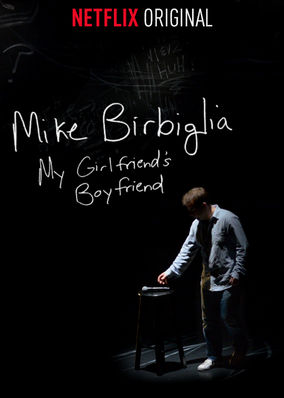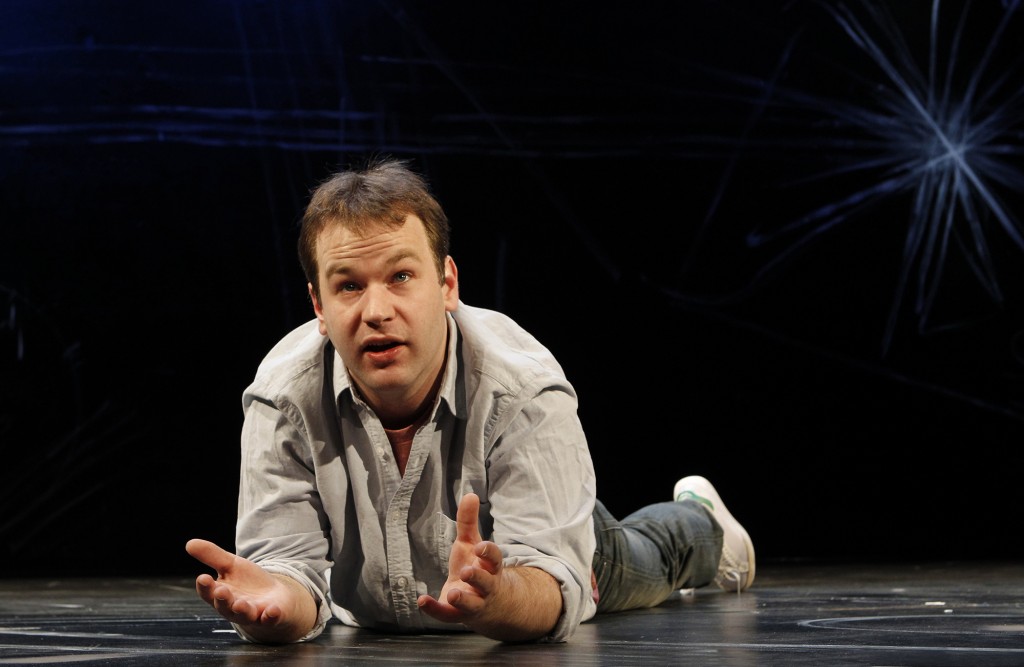
 Mark Twain once said, “Humor is tragedy plus time”. But, how much time?
Mark Twain once said, “Humor is tragedy plus time”. But, how much time?
In the fall of 2012, researchers at the University of Colorado examined “how humorous responses to a tragedy change over time by measuring reactions to jokes about Hurricane Sandy”. By studying humorous responses to a tragic situation, they found that, contrary to popular belief, most events don’t get funnier over time and that there is a actually a rise, peak, and fall to a joke’s reception after a tragedy. Essentially, jokes after a tragedy have a peak window of time where they are received as most funny and permissible. This peak, deemed by the researchers as the “sweet spot”, sits between the appropriate amount of time from the tragedy as to not offend and the point when a joke seems overdone or played out.
Comedian Mike Birbiglia has made a career dancing around this “sweet spot” and his new self-proclaimed one-man-show-cum-standup-special on Netflix, My Girlfriend’s Boyfriend, wonderfully combines the tragic and comedic in a unique way that most comedians wouldn’t dare go. Filmed in Seattle during a tour last year, My Girlfriend’s Boyfriend is Birbiglia’s latest project in a long line of standup specials functioning as memoir that intimately detail his everyman sufferings with dry and self-deprecating anecdotes. The special has the feel of a traditional comedian’s stand up but has a narrative framed around a love story that turns the special into a unique mixture between a stand up and a theatrical play or one-man show. This sui generis medium allows Birbiglia to explore a wide array of topics and emotions that you typically wouldn’t find in a standup special–most notably the real or tragic side of suffering. Birbiglia has waded in these waters before but what makes My Girlfriend’s Boyfriend excel is the depth with which he chooses to explore this wide range of emotions. Instead of shying away from heavy emotions, he embraces them.
The plot of My Girlfriend’s Boyfriend tells the story of Birbiglia falling in love with a woman named Jenny. The entire special revolves around the arc of awkwardly meeting, awkwardly pursuing and eventually (somewhat awkwardly) falling in love with Jenny. Peppered throughout this story though are extended flashbacks to key moments in Birbiglia’s romantic journey—a middle school date to the carnival involving cotton candy, popcorn, peanuts, ice cream, and a ride called The Scrambler (I’ll let you put two and two together); a high school “Cattle Call” dance where he had his first kiss; and most tragically amusing, a story about hanging out with his high school girlfriend’s other boyfriend.
[youtube=https://www.youtube.com/watch?v=eRawLalvP1M]
Much like his other contemporaries of dry or sardonic humor such as Zach Galifianakis or Demetri Martin, awkward silence is a key player in Birbiglia’s act. Unlike his contemporaries though, Birbiglia uses this silence in a slightly different way to let heavy or despondent emotions settle in to us a little bit and cause us to shift in our chair. Throughout the special, he does this by telling the story of a tragedy or misfortune in his life (a fight with Jenny, a car crash, etc) in vivid detail so that we as the audience slowly begin to empathize and feel a sense of sadness conflicting with our desire to laugh at each anecdote. After telling the story, usually he’ll let the audience sit silently for a moment, seemingly unsure whether to laugh or cry. When a few seconds have passed and the audience can seemingly take no more of the awkward silence, he finally let’s up the tension by telling a joke. It’s a strange, unsettling feeling but Birbiglia uses it well (along with an impeccable sense of timing) to allow us as the audience to alight briefly into his suffering with him and to allow us graciously into empathy with his suffering. It’s a bold storytelling technique that few comedians could or would employ without disastrous or awkward results. But in the hands of a great storyteller like Birbiglia, it succeeds.
The thorn in Birbiglia’s side that slowly reveals itself throughout the special is his apparent obsession with being right. In his relationship with Jenny, this naturally causes a rift not only because one of the things he knows he is right about is that he “doesn’t believe in marriage” but also when probed by Jenny on this obsession, he half-kiddingly remarks that he’s obsessed with being right because, well, “he knows he’s right”. This obsession seems to be the kindling to many belligerent arguments in the relationship and fuels an ongoing frustration with Jenny not being able to see Birbiglia’s side of things or agree with him.

These arguments finally culminate in an all night fight concerning Birbiglia not wanting to attend a wedding with Jenny because, as he’s told her before, he “doesn’t believe in marriage”. At this point in the show, Birbiglia begins to tell this story from the stage while channeling the same frustrations that he experienced in this moment. The volume of his voice increases gradually and he paces back and forth angrily on stage. It’s as if he’s not only arguing with Jenny but also with us the audience, trying to convince us of the same points he was trying to convince Jenny. The next day after the fight, he misses a flight to Los Angeles which then causes him to miss a comedy show at a club that he was supposed to perform at that night. This only fuels his anger even more. Ultimately, Birbiglia ends up at a friend’s house that night to vent his frustrations about the argument with Jenny and to receive affirmation from his friend that he is indeed right. His friend affirms his frustration and anger and Birbiglia leaves his friend’s house vindicated in his self-righteousness only to pull out of the driveway and be “T-boned” by an oncoming drunk driver which sends his car spinning out of control. It’s the first moment in Birbiglia’s days long fit of temper where something outside of his control contests his righteousness. For the moment, it sobers him.
After detailing the story to the police, Birbiglia flies home to New York to begin to mend the wounds of the fight with Jenny only to find out in the coming weeks that he is, according to the police paperwork, at fault for the accident. This of course stirs Birbiglia’s righteous indignation and leads him into a consuming devotion to amateur sleuth-work about the case. He has to and will prove he’s right. Given the facts presented by Birbiglia and a hilariously flubbed police report (which makes an appearance on stage on a projector screen in one of the funnier bits), we as the audience truly believe he’s right as well. There’s even a moment while telling this story where a woman gasps in the audience when he mentions that he was found at fault to which Birbiglia replies, “I know, right?”. He begins to obsess over proving that he is right and researching and compiling information for the case consumes him with a righteous fervor. This reckless pursuit of justice becomes an obsessive downward spiral that leads Birbiglia’s friends to abandon him and eventually, only Jenny remains.
[youtube=https://www.youtube.com/watch?v=6rm375F95oE]
Ultimately, it takes a glimmer of unconditional love from Jenny to break Birbiglia. While the two are at dinner, Birbiglia is busy scribbling notes about the case on a napkin. Jenny, who is clearly at the end of her rope, sees this obsession is killing him from the inside out and cuts through his hysteria with a simple word of adoration. He might be right but Jenny loves him simply because. Birbiglia for the first time since the crash seems to take his eyes off the case and watches as the notion of being right or wrong begins to crumble around him. At a time when he was a bitter, predisposed mess, grace breaks through his obsession with being right and for the first time he’s willing to “give up on the idea of being right”.

COMMENTS
Leave a Reply












